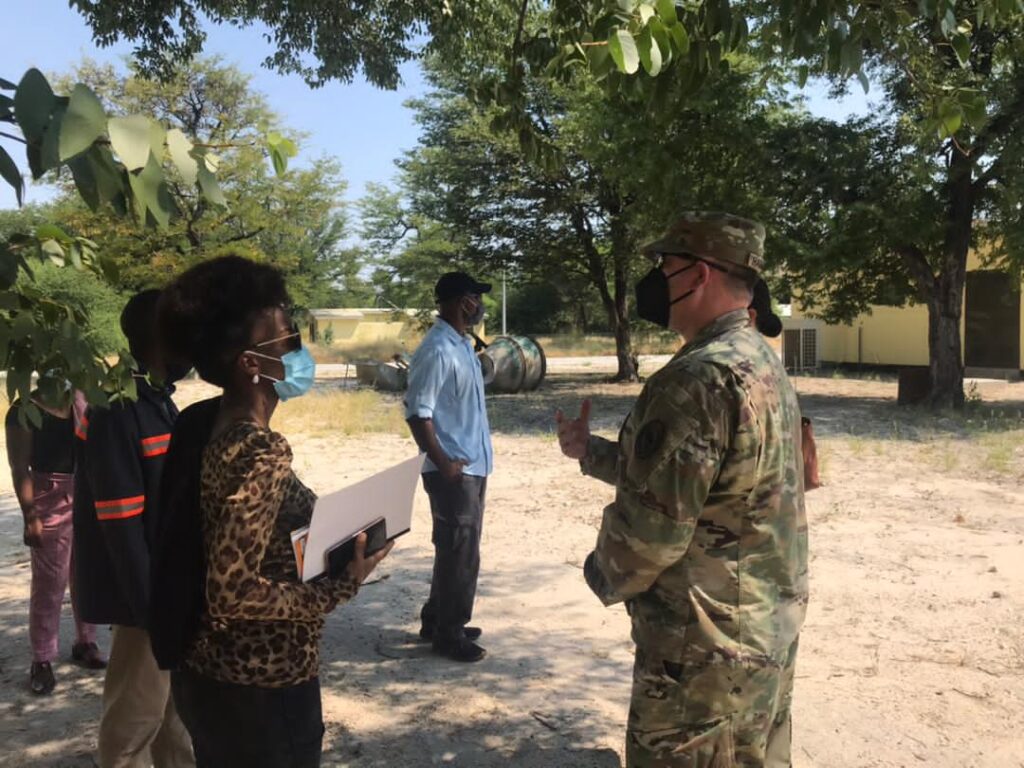ADF STAFF
In the race to stop the spread of COVID-19, the ability to treat patients in isolation is essential.
With hospitals in Botswana battling a surge of cases, the U.S. donated
nearly $1.7 million to build 14 isolation clinics in remote and underresourced areas.
Officials from the U.S. Embassy in Botswana, the country’s Ministry of Health and Wellness and the U.S. Centers for Disease Control and Prevention toured proposed clinic locations in Maun and Kasane in mid-March.
The U.S. also donated nearly $30,000 worth of personal protective equipment to Botswana’s Ministry of Health and Wellness.
In an email to ADF, the U.S. Embassy in Botswana said the Sir Ketumile Masire Teaching Hospital in Gaborone was unable to keep up with demand as the country experienced another wave of infections. The isolation clinics will help treat patients in remote areas closer to their homes and ease the teaching hospital’s burden.
The clinics will continue to treat communicable diseases once the pandemic ends.
The U.S. Embassy said COVID-19 denial is not an issue in Botswana because the government has mandated mask wearing and promoted social distancing and hand-washing. It also has imposed lockdowns and curfews, placed limits on crowd sizes, and required temperature checks and contact details for entry into any establishment.
In late March, Botswana began its vaccination campaign after procuring 100,000 COVID-19 vaccine doses through COVAX, the global plan to distribute vaccines equitably. The country of about 2.3 million people received vaccines produced by AstraZeneca and Johnson & Johnson.
“This vaccine delivery is really the result of the efforts of the Botswana government, who has funded the vaccine by its own means,” Jan Sadek, Botswana’s ambassador to the European Union, said in a report by the Batswana newspaper The Monitor. “And it follows the successful management of the pandemic, where the government has kept the country remarkably safe, despite all challenges.”
Front-line health workers and people over 55 will receive the first shots.
When COVID-19 cases soared in late February, President Mokgweetsi Masisi of Botswana extended an overnight curfew until the end of March. He also lifted a ban on alcohol sales. More than 50,000 people work in the country’s alcohol industry.
“Although necessary at the time, the government has nonetheless been worried by the effect of the temporary ban on the sale of alcohol on the industry, and by extension, the country’s economy,” Masisi told Voice of America.

